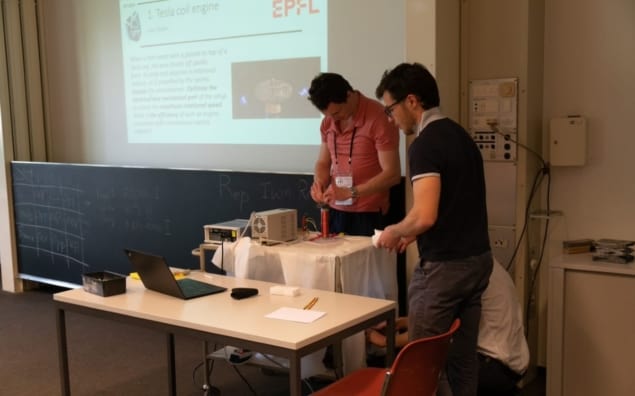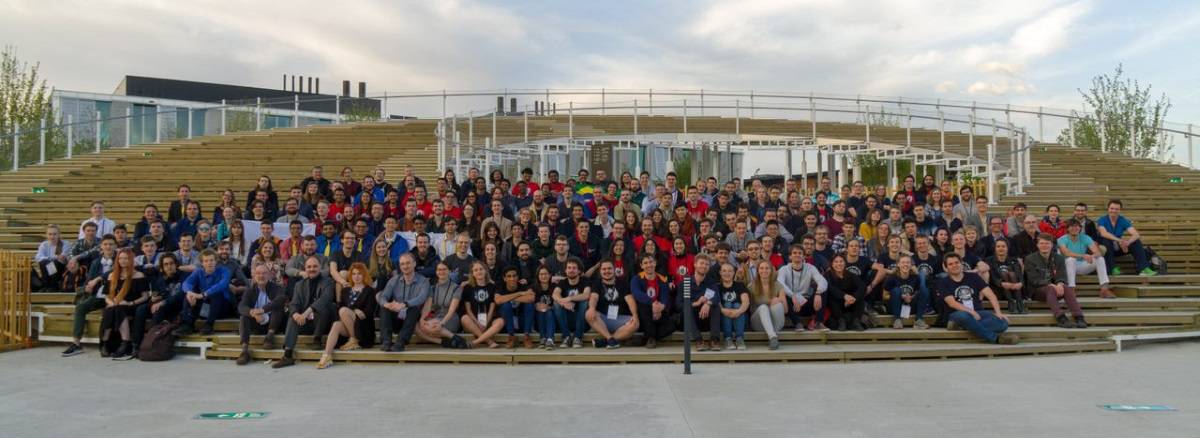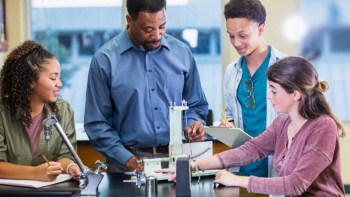
By David Collomb, University of Bath
The Olympics and the FIFA World Cup are sporting events that attract billions of spectators from all over the globe. I always imagined that there should be a similar international competition that tests a nation’s mastery of physics, so I was pleased to find in my undergraduate years that the International Physicists’ Tournament (IPT) is gradually establishing itself as the “World Cup for Physics”.
The IPT is an international tournament that tests the experimental and theoretical prowess of physics undergraduate students, and follows the same format as a similar competition for secondary schools (the International Young Physicists’ Tournament, IYPT). Participants spend around nine months preparing for the event, working on a pre-selected list of 17 open-ended and unsolved problems in physics. The climax, and most exciting part of the tournament, comes when the participating nations come together to present, defend and refine their solutions.
This year, students from 19 institutions and 16 different countries competed in the 11th edition of the event, which was hosted in April by the Ecole Polytechnique Fédérale de Lausanne (EPFL) in Switzerland. To find the winner the participants contest a series of “physics fights”, each one involving three teams of undergraduate students from different institutions.
At the start of a fight, one of the teams holds the position of the reporter, another is the opponent and the third is the reviewer. The reporter is challenged by the opponent to present its work on one of the problems, after which the opponent has an opportunity to critique the reporter’s work. The two sides engage in a brief debate on the proposed solution, and the reviewer then steps in to summarize the debate and to guide the other two opposing teams to improve the approach originally suggested by the reporter.

A jury of research academics and PhD students then marks the performance of the teams in their starting roles, and the teams then rotate until each one has held all three roles. After a qualifying round and two semi-finals, the top three teams do battle in a final fight to determine who will be crowned the World Physics Champion.
This year’s tournament was hotly contested, with more students and institutions taking part than ever before. For the first time the semi-final produced a tense twist of events in which a Russian team representing Voronezh State University was overtaken by a French team from Ecole Polytechnique – which denied the Russian team a place in the final. The other semi-final saw Colombia, which had finished 5th in the qualifying rounds, dropping to 6th place in a tight fight with the host nation.
It was, however, the final that could have been anyone’s guess, with Ecole Polytechnique joining clear front-runners Kharkiv University from Ukraine and a second French team from the University of Lyon. All three teams finished with just one point between them, but in the end it was France’s Ecole Polytechnique who narrowly outperformed the other teams with a very strong presentation and defence of their solution of the Tesla coil engine. Readers can relive the final on YouTube, which was live streamed to more than 2000 viewers.
The progress made by the participating teams on the 17 different problems does not stop at the tournament. Emergent Scientist is a spin-off journal from the event that offers a forum for students to publish their findings, while particularly strong efforts have been published in prestigious research journals – with a French team in the 2016 tournament publishing their work on a cobra wave made of popsicle sticks in Physical Review Letters.
This year’s tournament was made possible by the organizing committee in Lausanne, headed by Evgenii Glushkov and Jean-Philippe Ansermet. Anyone interested in future events is welcome to contact the IPT organizing team.



